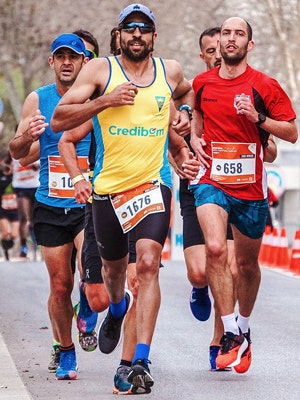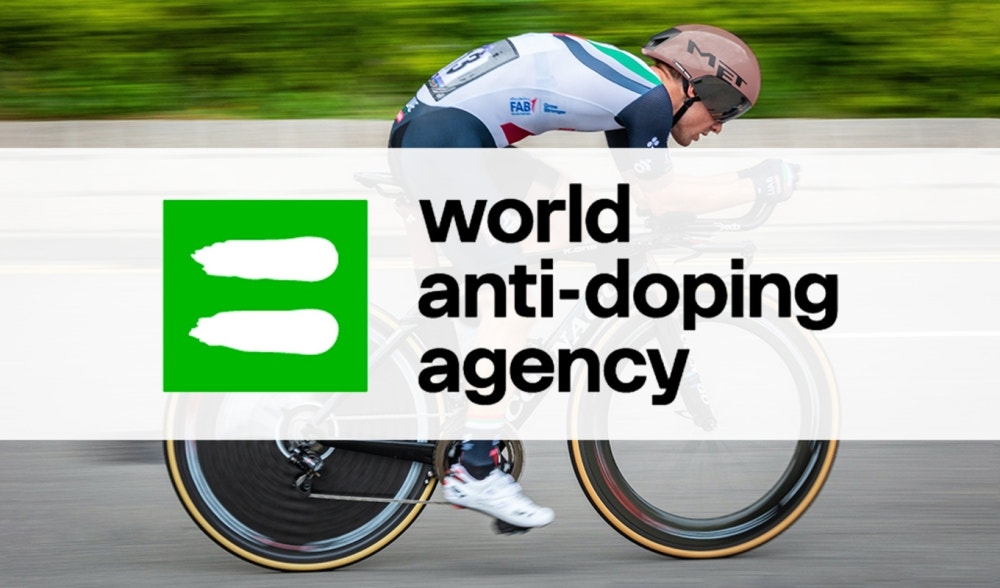That of the substances to be used to improve sports performance is not a recent problem , even Hippocrates and Galen spoke of it in 400 BC and since then, depending on the importance of the competition, scientists, sorcerers, gurus and hucksters of all kinds have alternated , always and in any case in search of "miraculous" substance.
 Obviously mostly these substances variously included in the athletes' programs very often have caused various and, in some cases, considerable health problems for the unfortunate people who used them. To this end, the need was felt to exercise control over the use of these substances and also of some methods that often accompanied the administration of the aforementioned; above all it was necessary to harmonize the classification of the substances to be prohibited with procedures valid for all the nations whose athletes were sent to the various competitions and, above all, to create a super-partes structure capable of controlling these activities and issuing updated classifications every year, and so was born thereWADA .
Obviously mostly these substances variously included in the athletes' programs very often have caused various and, in some cases, considerable health problems for the unfortunate people who used them. To this end, the need was felt to exercise control over the use of these substances and also of some methods that often accompanied the administration of the aforementioned; above all it was necessary to harmonize the classification of the substances to be prohibited with procedures valid for all the nations whose athletes were sent to the various competitions and, above all, to create a super-partes structure capable of controlling these activities and issuing updated classifications every year, and so was born thereWADA .
What is WADA?
The World Anti-Doping Agency, in English World Anti-Doping Agency (WADA) , is a foundation with mixed public-private participation, created by the will of the International Olympic Committee on November 10, 1999 in Lausanne, to coordinate the fight against doping in sport . In 2002, its headquarters were moved to Montreal, Canada, although legally it remains a private law foundation, governed by Swiss civil law. WADA is therefore an international organization that delegates the work to individual nations and national anti-doping organizations (NADO), monitoring their work so that it complies with the World Anti-Doping Code. Furthermore, WADA accredits approx30 laboratories that carry out the scientific analyzes necessary for anti-doping control .
The WADA World Anti-Doping Code is a document drawn up in order to bring anti-doping regulations into compliance in all sports and, more importantly, in all countries . Contains a list , updated every year, of prohibited substances and methods that athletes cannot use . It was adopted by sports organizations in 2004, before the Athens Olympic Games. In November 2007, at the Third World Conference on Doping in Sport, more than 650 sports organizations (international sports federations, national anti-doping organisations, the IOC, the International Paralympic Committee and various professional federations from around the world) unanimously adopted a Code revision, effective January 1, 2009.
The WADA Prohibited List of Substances and Methods (WADA List) is the document identified as the International Standard for identifying substances and methods prohibited in sport . The WADA List is one of the most important components for the global harmonization of the worldwide anti-doping movement. Divided into categories, it identifies which substances and methods are prohibited In Competition, Out of Competition and in Particular Sports .
The WADA List is updated annually following an extensive consultation process coordinated by WADA and comes into force on 1 January each year. In our country, WADA rules are managed by NADO Italy - National Anti-Doping Organization (NADO) -, functional division of the World Anti-Doping Agency WADA, which has exclusive responsibility for the adoption of anti-doping sports rules in accordance with the World Anti-Doping Code ( WADA Code) to which it is a signatory.
KEY ROLES AND RESPONSIBILITIES OF ATHLETES
It is the personal responsibility of each Athlete:
- be aware of having to comply with the Sports Anti-Doping Rules (NSA) and know the obligations deriving from them;
- always be available for the collection of a biological sample;
- personally answerable for the use or intake of anything in the anti-doping context;
- inform medical personnel of the prohibition of using prohibited substances and resorting to prohibited methods and ensure that any medical treatment received does not violate the NSA;
- report to NADO Italy and its International Federation any decision made by a non-Signatory on an Athlete who has committed an anti-doping rule violation in the previous ten (10) years;
- cooperate with Anti-Doping Organizations involved in the investigation of anti-doping law violations;
- disclose the identity of your Support Personnel at the request of NADO Italy, a National Sports Federation, or any other Anti-Doping Organization having authority over the Athlete
KEY ROLES AND RESPONSIBILITIES OF ATHLETE SUPPORT PERSONNEL
It is the personal responsibility of all Athlete Support Personnel to:
- be aware of having to comply with the NSAs and know the obligations deriving from them;
- collaborate in the implementation of anti-doping controls placed on the Athlete;
- use one's influence on the Athlete, promoting values and behaviors in contrast to doping;
- report to NADO Italy and its International Federation any decision made by a non-Signatory on who has committed an anti-doping rule violation in the previous ten (10) years;
- cooperate with Anti-Doping Organizations involved in the investigation of anti-doping law violations.
Athlete Support Personnel must not use or possess any prohibited substance or employ any prohibited method, without valid justification.
CLASSIFICATION OF SUBSTANCES
WADA has classified the substances " prohibited " in sport using classic and clearly understandable methods. Here is a simple overview:
- SUBSTANCES AND METHODS ALWAYS PROHIBITED
- Unapproved substances
- Anabolic agents
- Peptide hormones, growth factors, related substances and analogues
- Beta-2 agonists
- Hormones and metabolic modulators
- Diuretics and masking agents
- Prohibited methods (e.g. transfusion of homologous substances – autohemo transfusion_ and of heterologous substances. Any form of intravascular manipulation, regardless of the substance introduced; etc.
- SUBSTANCES AND METHODS PROHIBITED DURING COMPETITIONS
- Stimulants (specific and non-specific)
- Narcotics
- Cannabinoids (except Cannabidiol CBD)
- Glucocorticoids
- SUBSTANCES PROHIBITED IN PARTICULAR SPORTS (* )
- Beta blockers
- (*) Archery; motoring; darts, billiards; golf; mini-golf; each type of shot; extreme ski events; underwater sports
- Beta blockers
Conclusions
However, the fight against doping is constantly evolving, an update is presented every year capable of assimilating all the new substances that are gradually introduced in order to increase all phases of physical exercise almost always regardless of the protection of the health of the athletes.
Carmine Orlandi


Comments
Write a comment about the article